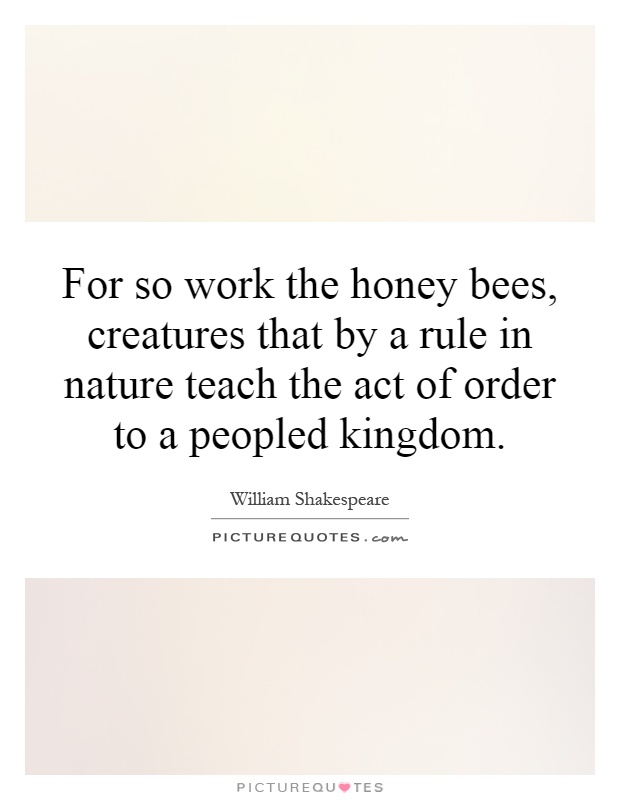For so work the honey bees, creatures that by a rule in nature teach the act of order to a peopled kingdom

For so work the honey bees, creatures that by a rule in nature teach the act of order to a peopled kingdom
In William Shakespeare's play, Henry V, the character of the Archbishop of Canterbury speaks these words in Act 1, Scene 2. The Archbishop is using the analogy of honey bees to explain how order and harmony are essential for a kingdom to thrive. Just as bees work together in a hive, each performing their specific roles, so too must the people of a kingdom work together for the common good.The comparison of humans to bees is a powerful one, as it highlights the importance of cooperation and unity in society. Bees are known for their incredible work ethic and their ability to work together towards a common goal. They have a strict hierarchy within their hive, with each bee knowing its place and performing its duties diligently. This sense of order and structure is crucial for the survival of the hive, just as it is for the success of a kingdom.
Shakespeare uses this analogy to emphasize the importance of order and discipline in society. Just as bees follow a set of rules and guidelines to ensure the smooth running of their hive, so too must humans adhere to laws and regulations to maintain peace and stability in a kingdom. Without order, chaos and discord will reign, leading to the downfall of the kingdom.
Furthermore, the comparison of humans to bees also serves to highlight the interconnectedness of all living beings. Just as bees rely on each other for survival, so too do humans depend on one another for support and cooperation. By working together towards a common goal, individuals can achieve great things and create a harmonious society.
Overall, Shakespeare's use of the analogy of honey bees in Henry V serves as a powerful reminder of the importance of order, cooperation, and unity in society. Just as bees teach us the act of order in nature, so too must we learn to work together for the greater good of our peopled kingdom.












 Friendship Quotes
Friendship Quotes Love Quotes
Love Quotes Life Quotes
Life Quotes Funny Quotes
Funny Quotes Motivational Quotes
Motivational Quotes Inspirational Quotes
Inspirational Quotes